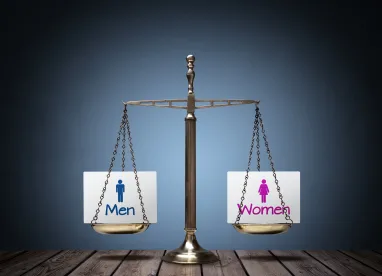A new appellate court ruling will permit workers in parts of the northeastern United States to bring forward federal law claims of workplace discrimination based on sexual orientation. The Second Circuit Court of Appeals on February 26, 2018, joined the Seventh Circuit Court of Appeals and the Equal Employment Opportunity Commission in holding sexual orientation is covered by Title VII, the federal law prohibiting employers from discriminating against employees on the basis of or because of a protected status. Although the Second Circuit’s ruling is limited in geographic scope to Connecticut, New York and Vermont, the holding is a reminder to employers that whether sexual orientation is protected under federal law is an area of continued debate.
Zarda, the plaintiff in this case, was an instructor at Altitude Express, a company offering skydiving experiences. A boyfriend of one of Zarda’s female clients complained to Altitude Express that Zarda had inappropriately touched his girlfriend and mentioned that he was gay. Zarda said the client seemed uncomfortable being strapped to a male instructor, and Zarda sought to reassure her by mentioning he was gay. Zarda was terminated. Altitude Express contends Zarda was fired for failing to provide an enjoyable experience to customers. Zarda argued he was fired because he disclosed he was gay.
In a 10-3 decision, the Second Circuit held sexual orientation discrimination was covered by Title VII. Judge Robert A. Katzmann, writing for the majority, noted “sexual orientation discrimination is a subset of sex discrimination because sexual orientation is defined by one’s sex in relation to the sex of those to whom one is attracted, making it impossible for an employer to discrimination on the basis of sexual orientation without taking sex into account.” Judge Katzmann acknowledged that although when passed, it was unlikely Title VII was broad enough to include discrimination based on sexual orientation, he recognized the reach of the law has expanded, and this decision reflected that evolution in thought. Akin to this reasoning, Judge Katzmann highlighted factors including life expectancy, non-conformity with gender norms and even sexual harassment were not originally included within the purview of Title VII, but courts later interpreted the law to include these “comparable evils.”
Judge Katzmann highlighted three separate ways sexual orientation discrimination was a subset of sex discrimination:
-
Sexual orientation is a function of sex and sex is a protected characteristic under Title VII.Judge Katzmann writes “because one cannot fully define a person’s sexual orientation without identifying his or her sex, sexual orientation is a function of sex.” The court highlights the example, “[i]n the context of sexual orientation, a woman who is subject to an adverse employment action because she is attracted to women would have been treated differently if she had been a man who was attracted to women.” Therefore, sexual orientation must be a function of sex and must be protected.
-
Sexual orientation discrimination is almost invariably rooted in stereotypes about men and women. Longstanding precedent supports that employers may not discriminate against women or men who fail to conform to conventional gender norms. Thus, an employer who discriminates against employees based on assumptions about the gender to which the employees can or should be attracted has engaged in sex discrimination.
-
Similar to anti-miscegenation policies, sexual orientation discrimination is discrimination based on association. Sexual orientation discrimination, which is based on an employer’s opposition to association between particular sexes and thereby discriminates against an employee based on their own sex, constitutes discrimination.
Writing for the dissent, Judge Gerard E. Lynch rebuffed the majority opinion on the basis of a textual interpretation of Title VII, noting Congress did not intend to include sexual orientation when it passed Title VII in 1964. “I would be delighted to awake one morning and learn that Congress had just passed legislation adding sexual orientation to the list of grounds of employment discrimination prohibited under Title VII of the Civil Rights Act of 1964,” Judge Lynch wrote. But, “[w]hen interpreting an act of Congress,” Judge Lynch noted, “we need to respect the choices made by Congress about which social problems to address, and how to address them” much like many state legislatures had done already. “I hope that one day soon Congress will join them, and adopt that principle on a national basis,” he wrote, “[b]ut it has not done so yet.”
Although for now this case has a limited geographic impact, it did further the divide amongst the circuit courts with the Second and Seventh Circuits having determined sexual orientation is protected under Title VII, and the Eleventh Circuit holding sexual orientation is not protected under Title VII. Employers that have employees in states within the jurisdiction of the Second Circuit and Seventh Circuit – Connecticut, Illinois, Indiana, New York, Wisconsin and Vermont – should familiarize themselves with the ruling and update their policies and employee handbooks. Employers with operations elsewhere should continue to monitor state and federal law on workplace discrimination as it applies to sexual orientation.
The case is Melissa Zarda, et al. v. Altitude Express, dba Skydive Long Island, et al. Case No. 15-3775, in the U.S. Court of Appeals for the Second Circuit.



 />i
/>i
